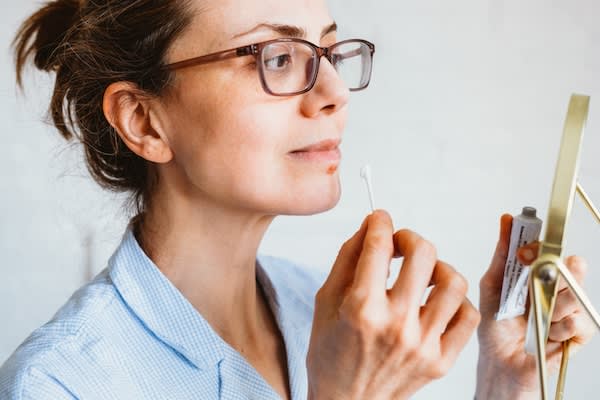Design for all: How diverse engineers foster innovation

[5 MIN READ]
In this article:
-
Designing innovative products for diverse groups of patients demands a diverse technology team that understands the needs of these different health care consumers.
-
While engineering and innovation career fields have historically been dominated by men, Providence is leading the way with a diverse team of technologists who are bringing patient-centric innovation to the forefront.
-
Read on to learn how one group of women technologists at Providence is meeting diverse patient needs in product development.
No two patients are alike. And with nearly 30 million patient visits across seven states every year, Providence understands the need to support the different needs of diverse health care consumers throughout their wellness journeys.
The Providence Digital Innovation Group (DIG) recognizes the challenge of providing care for these different patients – as well as the role that a diverse team can play in leading innovation that improves patients’ lives.
“A diverse engineering team with different perspectives is super important,” says Sara Vaezy, executive vice president and chief strategy and digital officer for Providence. “We really believe this has a direct impact on the technology and innovation that occurs in our group, whether it’s giving us a broader understanding of the social determinants of health to having a greater sense of empathy during product development or serving in our service design process to help us reduce bias.”
Bringing diverse thinkers to the forefront
Historically, engineering – including software engineering, product development and other innovative areas – has been male dominated. However, in recent years, the share of women working in these areas has been growing. In a recent discussion with women engineers and designers within DIG, Vaezy and the team discussed innovation work from women’s perspectives, excitement around innovating in health care and how this team has been able to meet diverse patient needs in product development.
“As a health care system, we have seen how important our role is in our communities,” says Vaezy. “We serve so many patient populations across geographies that couldn’t be more different from one another. We offer a lot of different perspectives and want to be representative of the communities we serve.”
Toyin Falola, M.D., is a board-certified dermatologist and the associate vice president for clinical product strategy - virtual care and digital health at Providence. Having spent significant time in the San Francisco Bay area near Silicon Valley, technology innovation was front and center for her and has driven her work in creating innovative solutions for patients.
“We are using technology to make an impact,” says Falola. “As clinicians at Providence, we are surrounded by other people who have the same passion and who are using shared expertise with technologists to solve these problems.”
Lisa Mason is the associate vice president of product design and insights for Providence’s Digital Innovation Group. While health care is not known for being a fast-moving or rapidly changing industry – factors that can make it a challenging space for technologists to work in – Mason is looking at different ways to innovate and help people even in slow spaces.
“At a macro level, thinking about institutions like the government, health care can be very slow,” says Mason. “Think of applying for Medicare and how challenging that can be. But that’s also an opportunity for us to innovate in that space and help people. At a micro level, within our system, I observe our caregivers notice a problem and pilot solutions themselves. There is a willingness to experiment and try things out quickly.”
Syneva Runyan is a software development manager for Providence’s Digital Innovation Group. She has been experimenting with artificial intelligence and large language models to help improve the experience when patients try to reach out to their providers. For example, Runyan found that AI responses, including chatbots, can help patients self-serve on up to 30% of the questions they would otherwise send to their caregivers. That means patients can get their questions answered faster and with less frustration.
“Health care is a service that means something to everybody,” says Runyan. “There is so much need for innovation in this space, but oftentimes the constraints we experience in health care can lead to more creative solutions.”
Driving innovation for diverse patients
Just 12% of health outcomes are impacted by health care delivery – that is, seeing your provider. Providence takes a proactive approach to the other enablers of health, including things like safe housing, access to nutritious food and community support. Many of these social determinants of health have technology solutions that DIG is working to bring to life.
“As creators of innovative technology tools, we must constantly remind ourselves that the end user is a patient or clinician,” says Falola. “There has to be nuance and thoughtful deliberation to how products are developed. We have to make sure it’s innovative and patients’ lives are actually improved in beneficial ways.”
This focus means that DIG is solving real, existing problems with technology by understanding these problems deeply and collaborating with caregivers, patients and others to solve them collaboratively.
“In the past, a lot of product ‘innovation’ for women was about making a product smaller and coloring it pink,” says Mason. “But more than half of the population is women, and we make purchase decisions. Being a woman at the intersection of health care and technology brings an opportunity to address these stereotypes.”
Having a diverse technology team has helped DIG in creating these solutions for patients, caregivers and the communities Providence serves.
“Diversity and inclusive thinking about product design are the bare minimum,” says Falola. “Our patient and clinician populations mirror the diversity of the country. That means inclusive design is something we can’t just talk about. We have to have inclusive products and diverse, disruptive stakeholders making them.”
Contributing caregivers

Toyin Falola, M.D., is the associate vice president for clinical product strategy - virtual care and digital health at Providence.

Lisa Mason is the associate vice president of product design and insights for Providence’s Digital Innovation Group.

Syneva Runyan is a software development manager for Providence’s Digital Innovation Group.

Sara Vaezy is the executive vice president and chief strategy and digital officer for Providence.
Find a doctor
Your provider can connect you to care and treatments that can improve your quality of life. If you are looking for a primary care provider, you can search for one who’s right for you in our provider directory.
Download the Providence app
It’s all in the app: easily stay connected with Providence and your health. With the Providence app, you can schedule appointments, have virtual visits from the comfort of your own home, get health recommendations personalized for you, access your health records and so much more. Learn more and download the app.
Related resources
Why diverse engineers are critical to the future of health care innovation
Digital in action: Improving patient navigation with Grace
Download the Providence app for care at your fingertips
This information is not intended as a substitute for professional medical care. Always follow your health care professional’s instructions.



